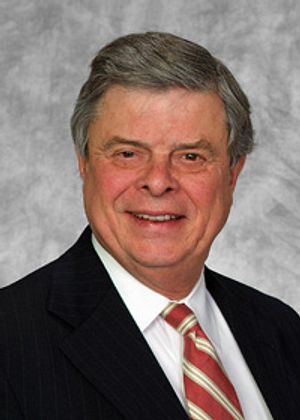Senator Max Baucus’ nomination to be the next U.S. Ambassador to China has cleared the Senate Foreign Relations Committee. Baucus is expected to be officially confirmed by the Senate later this week. With this in mind, I spoke with former Senator from Tennessee and former U.S. Ambassador to China James Sasser about what Baucus can expect when he arrives in Beijing.
The Diplomat: The previous two ambassadors to China [Jon Huntsman and Gary Locke] were former governors, and other ambassadors have had State Department backgrounds. How do you think having a background as a Senator will benefit Senator Max Baucus as he becomes Ambassador to China?
Ambassador James Sasser: I think it will benefit him by knowing about the intricacies of how the United States government operates and how foreign policy and political affairs intermingle. He will understand statesmen in the Senate and in Congress generally, and I think that’ll be very helpful to him in relating to the Chinese how they are perceived and how their actions are perceived by the Congress.
In your opinion, what is the major role of a U.S. Ambassador to China?
Well, I think his major role is interpreting American foreign policy, as it’s directed toward China and to the rest of the world, to the Chinese, particularly the Chinese leadership and the Chinese Foreign Ministry. Also he, I think, needs to be in a position to be sort of a person of good will, who can help arbitrate or ameliorate some of the tensions between the two countries that are invariable. They’ll come up — there always will be problems between China and the U.S., because we are the two largest economies in the world. We conflict in a lot of ways, although we cooperate in many more ways.
What do you think are going to be some of the biggest challenges facing Senator Baucus when he heads to Beijing?
I think one of his biggest challenges is trying to convince the Chinese government that we’re honest brokers in the effort to try to resolve the dispute between the Japanese and the Chinese in the East China Sea. And we have no particular preference, per se, as to the sovereignty of these areas —well, mostly; I think we do side with the Japanese to some extent. But we have no real preference as to who is paramount in that area. Our interest is trying to maintain the peace and to maintain stability in the region and in that particular area. That’s going to be one of his problems, in trying to explain to the Chinese that we are indeed an honest broker and come to it with no real bias as to how it should be resolved, other than peacefully.
How is the situation today different from in the 1990s, when you were serving as Ambassador to China?
The relationship is much more advanced, is much more mature. There’s much more understanding between the two countries, much better communication between the two governments. That’s all vastly improved since I went there in January of 1996. You’ll recall that 90 days after I got there, the Chinese were lobbing rockets into the Taiwan Strait and we were sending carrier battle groups down there in response to that. So we’ve come a long way since those days. We now have summit meetings between our two presidents fairly regularly, and regular exchanges at high levels with high level officials.
When you spoke with Senator Baucus, what sort of advice did you offer him?
My advice to him was to get to know the Chinese leadership as well as he could, to become known as a man of good will in China, and one who was always open to their ideas and their concerns.

































